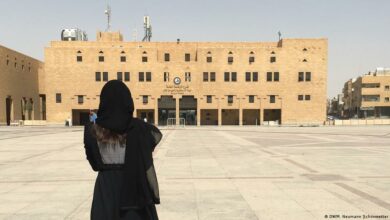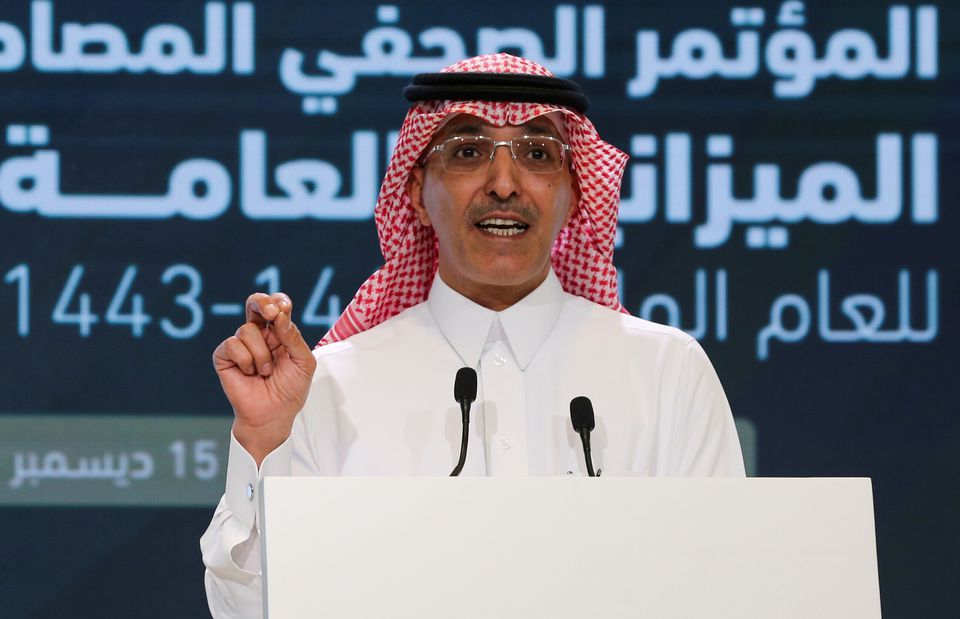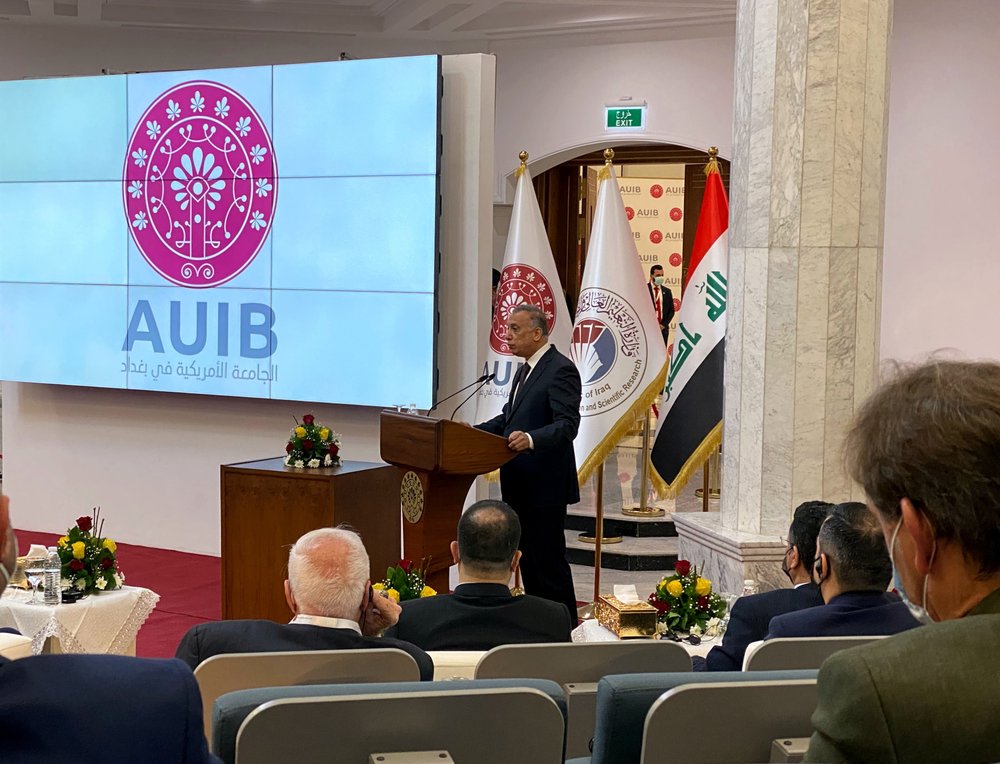“This is a giant that needs to be awakened to save Egypt…look at what other diaspora communities are doing,” said one enthusiastic participant in a recent London conference for the Egyptian National Assembly for Change (NAC). The conference was one of a series of public events aimed at fostering ties and coordinating pro-democracy efforts between Dr. Mohamed ElBaradei and traditionally apolitical Egyptian expatriates. The latest event was a September 17-20 conference organized by the Alliance of Egyptian-Americans in Washington D.C., following other events in New York and Boston. The NAC has quickly found strong support among Egyptians in more than ten countries, including those that host some of the largest Egyptian expatriate communities such as Saudi Arabia (1 million), the United States (320,000), Jordan (230,000), Kuwait (190,000), Canada (110,000), Italy (90,000), and the United Kingdom (35,000) according to a 2010 International Organization for Migration report.
The Egyptian diaspora, estimated at between 3 and 8 million worldwide, has until now not been a factor in Egyptian domestic politics, in contrast to the active roles played by Armenian, Irish, and Cuban expatriates. Political apathy has dominated the behavior of most Egyptian expats, and indeed most other Arab expatriates, with the exception of some Palestinians. Most Egyptian expats have been more concerned about building economic fortunes and retaining the ability to go back home without fear of government reprisals. Moreover, for decades strong Arab nationalist sentiments and slogans such as “no voice is above the voice of the battle” (i.e., the Arab-Israeli conflict) made it shameful to criticize Arab regimes from abroad.
The days when Egyptians withheld criticism of the regime, however, are over. The Mubarak regime’s blockade on Gaza, mishandling of the Egyptian-Algerian soccer crisis, and the June 2010 torture/murder of young Alexandrian Khalid Said are a few of the recent incidents that have compounded longstanding concerns about economic deprivation, social injustice, and political repression and have convinced many Egyptian expatriates that the welfare of the country and the interests of the regime are two very different matters.
ElBaradei and his NAC entered the fray earlier this year with their efforts to mobilize a diaspora still divided along political, ideological, religious, and social class lines. And in fact the recent conferences in the United States and United Kingdom marked a significant new development: Egyptians rallying for democracy and united against authoritarianism regardless of ideology, religion, or class. The London conference, for example, gathered Muslim Brothers and Coptic activists, liberals and Nasserists, wealthy businessmen and university professors, as well as waiters and maids. Many different Egyptian accents were represented including the Upper Egyptian, the Cairene, the Alexandrian, and the Sinai. The same phenomenon has occurred at the conferences held in the United States.
The agents of change are as important as the frustrating conditions driving the calls for it. While socioeconomic and political grievances voiced now in the diaspora have been around at least since the early 1990s, the emergence of a credible messenger able to articulate those grievances and courageous enough to demand political reform has made a difference. ElBaradei and diaspora Egyptians understand each other. When ElBaradei speaks about “socialist democracy,” for example, expatriate Egyptians do not conflate it with Nasser’s Arab Socialism (now associated with demagoguery, military dictatorship, and economic failure). Rather, Egyptians who have lived in the United Kingdom, Canada, Austria, and Scandinavia understand well what ElBaradei means: a representative democracy, a social justice system, and a well-developed welfare state.
What can Egyptians living abroad do to promote political reform in Egypt? ElBaradei and the NAC realize that the potential advantage of the expats lies in their numbers, and thus have made permitting Egyptians abroad to vote in Egyptian elections via consulates and embassies (as Iraqis and Algerians already do) one of the seven demands on a petition that is now close to garnering a million signatures. The argument is that it is unacceptable to disenfranchise as many as 8 million Egyptians who contribute roughly $8 billion to Egyptian GDP each year (according to the World Bank, Egypt is the biggest recipient of remittances in the Middle East).
The expatriate voting proposal is important not only because it has mobilized diaspora Egyptians, but because it potentially could have a significant impact on elections were it to be adopted. There would be no Central Security Forces on the streets of London, Washington, or Montreal to block the entrance of the consulates, intimidate voters, arrest activists, and harass journalists who report on violations. If independent and international monitoring was allowed–another of the NAC’s seven demands–and if the results were declared immediately following a monitored vote-count in the embassies, the likelihood of wide-scale electoral fraud could be minimized.
Egyptians in the diaspora face many obstacles to playing such a role. The Mubarak regime so far is ignoring the demand for expat enfranchisement. And while Egyptians in Western countries can organize freely so far, the many in Arab countries face a darker prospect, highlighted by the April deportation from Kuwait of 21 supporters of ElBaradei. Such an extreme episode is unlikely to be repeated, but Arab governments have at their disposal many tools to discourage activities against the Mubarak regime should they chose to do so.
Added to all of that is the fact that Egyptian expatriates are far from deciding on a strategy: push seriously for enfranchisement, work on influencing policies toward Egypt in their new home countries, raise money for the causes? And they also face real challenges in terms of overcoming their differences in order to form strong organizations. Still, it is clear that for now diaspora Egyptians are responding in a way they never have before to ElBaradei’s message to them: If you don’t act and participate now, then do not complain tomorrow!”
Omar Ashour is a Lecturer in Political Science and the Director of the Middle East Graduate Studies Program at the Institute of Arab and Islamic Studies, University of Exeter (UK). He is the author of The De-Radicalization of Jihadists: Transforming Armed Islamist Movements(London, New York: Routledge, 2009).
This article is published courtesy of the Carnegie Endowment for International Peace's Arab Reform Bulletin. http://www.carnegieendowment.org/arb/




